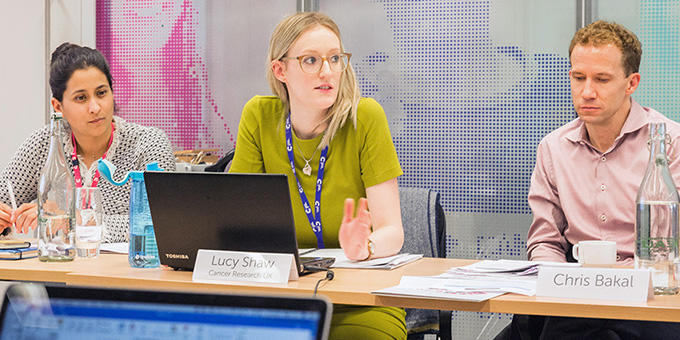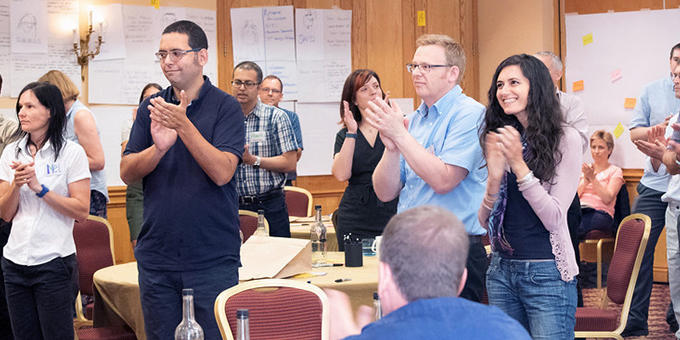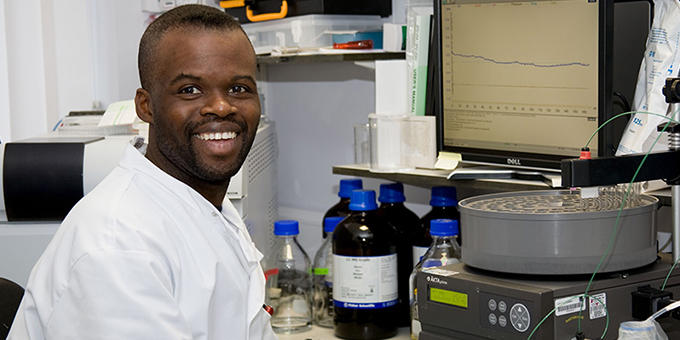Diversity data in our research funding

Knowing who we award funding to is fundamental to tackling inequalities
We are transparent about who applies for our research grants, and who they are awarded to – including publishing diversity characteristics such as age, disability, ethnicity and gender.
We invest in world-class research, and we know to remain world-class, it needs to be undertaken by a diverse and inclusive community.
Over the past two years, we’ve been changing how we fund research to help overcome the shortcomings revealed by our diversity data.
And we have made progress. Overall success rates for men and women who apply for our funding are equal, we’re receiving increasing numbers of fellowship applications from people from ethnic minority backgrounds and we’re providing targeted support to encourage more Black students into cancer research. But we’re not satisfied that we’ve made enough progress toward the truly diverse research community we’re aiming to create.
This year’s report details the steps we’re taking and the initiatives we’re supporting to realise this ambition. It will take time to see the full impact of these changes, so we’ll next share our diversity data in an official report in 2026.
Snapshot of key findings

Our applicants and awardholders
- Overall success rates for men and women who apply for our funding are equal
- The proportion of applications from and awards received by researchers from an ethnic minority background have both increased, to 23% and 21% respectively.
- The percentage of applicants from Black / African / Caribbean / Black British backgrounds remains at 1%, which is lower than the UK biosciences academic staff population at 2%.
- The percentage of our lead applicants declaring a disability remains at 2%, lower than the proportion of UK biosciences academic staff who reported a disability at 4%.

Our committee members
- 51% of our committee members are women.
- The proportion of researchers from an ethnic minority background on our funding committees is in line with our target of 20%.
- As of the time of this report, no committee members are from Black backgrounds.

Our institutes
- Nearly 60% of PhD students at our institutes are women, however the proportion of women group leaders remains at less than one-third.
- The number of staff at our institutes from an ethnic minority background has increased, to 25%.
- 5% of staff at our institutes declared a disability, reflecting the sector average.
What we’re doing to improve diversity and inclusion within our research community
- We’re rolling out narrative-based CVs to ensure we’re attracting and retaining the full range of the most promising research and innovation talent. We want to ensure wider contributions beyond grant and publication records are recognised and valued.
- We’ve introduced a positive action scheme for researchers to observe our funding panels and committees, which prioritises places for underrepresented groups.
- We have more clearly defined how to access the support we offer anyone applying to our funding who requires adjustments due to health conditions including mental health, physical, sensory or cognitive differences, and we're continuing to review how we can make our grant funding more accessible to everyone.
- Our Women of Influence scheme supports our researchers in tackling some of the barriers women may face when progressing to senior positions, empowering them to become leaders.
- We’re partnering with In2scienceUK and Black in Cancer to mentor school children and undergraduates from low socio-economic backgrounds and Black backgrounds to offer them opportunities to build a career in cancer research.
- We're continuing our Black Leaders in Cancer PhD Scholarship Programme to help develop the next generation of Black leaders in cancer research.
-
We’re continuing to support Black in Cancer in its mission to build a global community celebrating Black excellence in research.
Previous reports
Page updated July 2023



